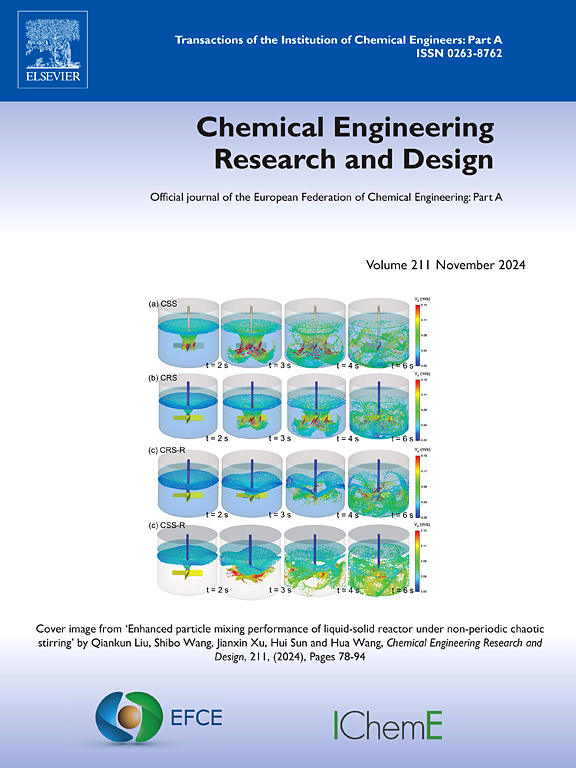High-temperature honeycomb molecular sieve catalyst for efficient and safe NOx removal in gas-fired internal combustion engine
IF 3.9
3区 工程技术
Q2 ENGINEERING, CHEMICAL
引用次数: 0
Abstract
To address the challenges of efficient and safe denitrification under actual flue gas conditions of internal combustion engine, high-temperature SCR molecular sieve catalyst were prepared and evaluated both in laboratory scale and industrial scale. A comprehensive characterization via TG, XRD, N₂ adsorption-desorption, SEM, and TEM confirmed the robust thermal stability of the molecular sieves catalyst. The molecular sieve catalyst system was commissioned in a 4275 kW distributed natural gas internal combustion engine demonstration facility and successfully passed the 72 h trial running, achieving with over 94 % NOx conversion efficiency and less than 40 mg/m3 outlet NOx concentration at a temperature range of 440–525 °C. Compared to conventional V-based catalyst, the molecular sieve catalyst not only achieved additional reductions of 2 kg/h NOx and 38 kg/h CO2 emissions, along with a nearly 2 % improvement in internal combustion engine efficiency, but also effectively mitigated the risk of system shutdown caused by low cylinder temperatures in exhaust gas purification systems, being considered as a promising catalyst for high-temperature applications, including gas-fired, hydrogen/ammonia-fueled, and biogas internal combustion engines.
高温蜂窝分子筛催化剂在燃气内燃机中高效、安全脱除NOx
针对内燃机实际烟气条件下高效、安全脱硝的挑战,制备了高温SCR分子筛催化剂,并在实验室规模和工业规模上进行了评价。通过TG、XRD、N₂吸附-脱附、SEM和TEM等综合表征,证实了分子筛催化剂具有良好的热稳定性。分子筛催化系统在4275 kW分布式天然气内燃机示范装置中调试,成功通过72 h的试运行,在440-525℃的温度范围内,NOx转化效率达到94% %以上,NOx出口浓度低于40 mg/m3。与传统的v基催化剂相比,分子筛催化剂不仅实现了2 kg/h NOx和38 kg/h CO2排放量的额外减少,同时内燃机效率提高了近2% %,还有效降低了排气净化系统中因气缸低温而导致系统停机的风险,被认为是一种很有前途的高温应用催化剂,包括燃气、氢/氨燃料、还有沼气内燃机。
本文章由计算机程序翻译,如有差异,请以英文原文为准。
求助全文
约1分钟内获得全文
求助全文
来源期刊

Chemical Engineering Research & Design
工程技术-工程:化工
CiteScore
6.10
自引率
7.70%
发文量
623
审稿时长
42 days
期刊介绍:
ChERD aims to be the principal international journal for publication of high quality, original papers in chemical engineering.
Papers showing how research results can be used in chemical engineering design, and accounts of experimental or theoretical research work bringing new perspectives to established principles, highlighting unsolved problems or indicating directions for future research, are particularly welcome. Contributions that deal with new developments in plant or processes and that can be given quantitative expression are encouraged. The journal is especially interested in papers that extend the boundaries of traditional chemical engineering.
 求助内容:
求助内容: 应助结果提醒方式:
应助结果提醒方式:


